Snakegourd is a creeper belonging to cucumber family. It is widely grown in many parts of the world and has got high medicinal properties. It is rich in water contents and provides cooling effect to our body. It is a low calorie vegetable and is rich in calcium, magnesium and phosphorous.
This is a recipe snakegourd curry native to Palakkad. The preparation is very simple and tastes great with chapati / rice. Cook the dal for one whistle adding turmeric power, red chilly power, chopped onion. Then add snake gourd to it and cook again for some time. Then add ground coconut mixture and finally the tempered ingredients. Now to the recipe..
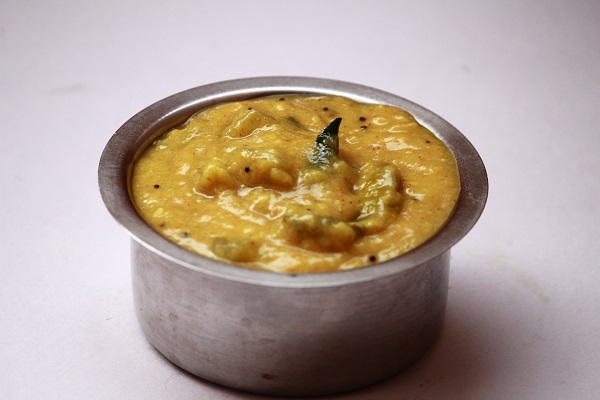
Ingredients required
moongdal (split) – 1 cup
onion – 1/4 cup
green chilli – 2
turmeric powder – 1/4 tsp
red chilli powder – 1 tsp
salt – to taste
snake gourd / padavalanga – 2 cups (chopped)
For grinding
coconut – 1/2 cup
jeerakam / cumin – 1/2 tsp
For seasoning
coconut oil – 1 tablespoon
mustard seeds – 1 tsp
curry leaves – few
dry red chilli – 2
Technique
1. Wash moong dal (split) twice and add it to pressure cooker. To this add turmeric powder, onion, green chilly and chilly powder. Add required amount of water and mix well. Cover and pressure cook for 1 whistle.
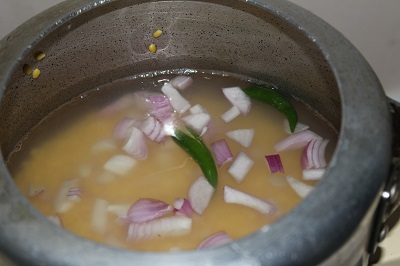
2. Once the pressure subsides, open the pressure cooker, mix well. Add chopped snake gourd pieces to it. Mix it, add more water if required. Next add salt. Turn on the flame and let it cook till the snake gourd pieces get cooked well.
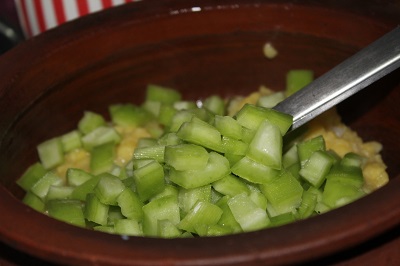
3. Meanwhile, grind together coconut and jeera to a fine paste by adding little water.
4. Once the snakegourd pieces are cooked well, reduce the flame to low, and then add the ground mixture. Wait till it starts boiling and then turn off the stove.
5. In another pan, heat oil, splutter mustard seeds. Then add red chilly and curry leaves and saute for a few seconds.
6. Add the tempered ingredients to the curry.
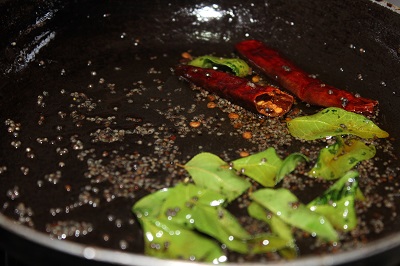
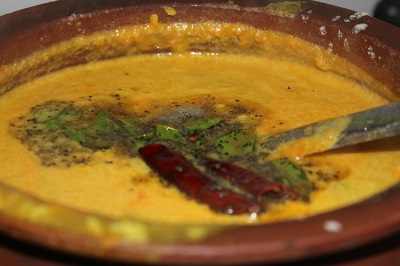
7. Snake gourd curry is ready. This can be served with rice and also with chapathi / roti.
If you find this post useful, I would be happy if you can share it with your friends in google+, facebook or twitter. All you have to do is click the corresponding button.